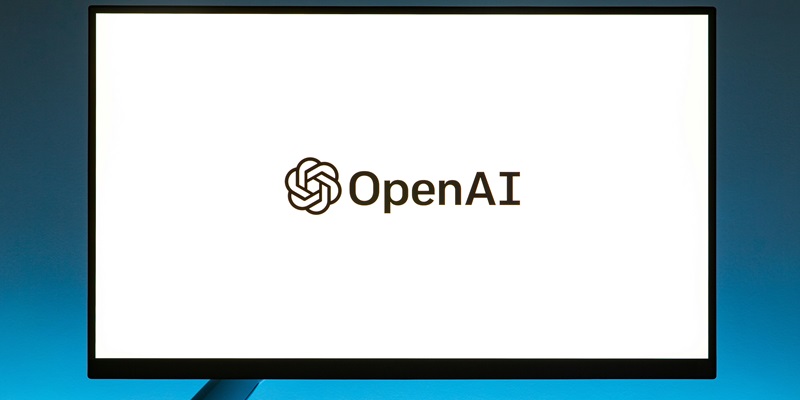The competition between OpenAI and Anthropic is not just about technological superiority, but also about their differing philosophies in artificial intelligence advancements. OpenAI, with significant backing from Microsoft, is steering its innovations towards making AI more accessible and user-friendly for the everyday consumer. This includes features like voice interaction capabilities, which aim to make AI use as natural and uncomplicated as possible. OpenAI’s strategy is clear: to democratize AI by broadening its usability across a myriad of everyday applications. However, this expansive consumer approach has not been without criticism, particularly concerning the company’s coding performance, which many believe falls short when stacked against Anthropic’s offerings.
Anthropic, supported by Amazon, is taking a markedly different route. With a strong focus on developer-oriented solutions, Anthropic aims to refine and perfect AI applications that are particularly adept at coding tasks. Their Claude Sonnet 3.5 model stands out for its exceptional code generation and editing capabilities, which include autonomously performing complex coding tasks. A prime example is a demo where the updated Sonnet model successfully built a functional website, showcasing its algorithmic prowess. This has positioned Anthropic as a preferred choice for professional developers seeking advanced tools capable of high-level assistance in their programming tasks. The accolades for Claude’s capabilities indicate the company’s deep commitment to excelling in niches that demand technical rigor over broad user accessibility.
OpenAI’s Consumer-Driven Strategy
OpenAI’s decision to pivot towards enhancing consumer functionalities has been met with both enthusiasm and skepticism. By simplifying AI interactions and making them more intuitive, OpenAI has carved out a niche aimed at non-technical users. Voice interaction capabilities, for instance, have the potential to transform how everyday users interact with technology, making it more seamless and integrated into daily life. This approach aligns perfectly with their goal of making AI technologies more mainstream, which would naturally mean a significant expansion of their market reach. Nonetheless, this consumer-centricity has raised some eyebrows among developers who feel that the focus on user-friendly features comes at the expense of more sophisticated coding functionalities.
Internal reports from OpenAI have acknowledged some lag in their coding performance, particularly when weighed against the advancements made by Anthropic. Realizing the critical importance of maintaining a competitive edge in the coding domain, OpenAI is now striving to bolster their coding assistants. They aim to roll out improved versions by the fourth quarter, thus aiming to address the growing concerns voiced by professional developers. The strategic challenge for OpenAI lies in how to balance their push for broad accessibility without alienating the tech-savvy developer community that requires robust and efficient coding tools.
Anthropic’s Developer-Centric Approach
Unlike OpenAI, Anthropic has chosen a focused path, centering its advancements primarily on fulfilling the intricate needs of developers. The Claude Sonnet 3.5 model exemplifies this approach by excelling in code generation and autonomous coding tasks. For developers, this means having access to an AI tool that not only assists but can independently execute complex coding tasks, thereby enhancing productivity and enabling more sophisticated project developments. The compelling demo of their Sonnet model autonomously building a functional website underscores the potential of what they can offer to the developer community.
Anthropic’s sharp focus on coding has solidified its reputation as a leader in providing high-quality, developer-focused AI solutions. By prioritizing technical expertise and precision, Anthropic has gained the trust of a niche yet vital user base—professional developers. This focus allows Anthropic to pour more resources and effort into refining their products to better meet the rigorous demands of coding tasks. With Amazon’s substantial backing, Anthropic has the capacity to continually evolve and enhance its AI models, creating a dynamic environment for developer-first innovations.
The Future of AI: Bridging the Gap
OpenAI and Anthropic are not just vying for technological superiority but also showcase contrasting philosophies in AI advancement. With robust backing from Microsoft, OpenAI’s innovations are geared towards making AI more accessible and user-friendly for the average consumer. Features like voice interaction aim to make AI use easy and intuitive. OpenAI’s mission is to democratize AI, making it usable across a variety of everyday applications. However, this consumer-centric approach has faced criticism, especially concerning its coding performance, which critics argue falls short compared to Anthropic’s offerings.
On the other hand, Anthropic, supported by Amazon, follows a different path. Focused on developer-oriented solutions, Anthropic aims to perfect AI applications adept at coding. Their Claude Sonnet 3.5 model is noted for its exceptional code generation and editing capabilities, autonomously performing complex coding tasks. A standout demo showcased the Sonnet model building a functional website, highlighting its algorithmic strength. This positions Anthropic as the go-to for professional developers seeking advanced tools for intricate programming needs. The recognition of Claude’s capabilities underscores Anthropic’s commitment to expertise in technical fields over broader consumer accessibility.

